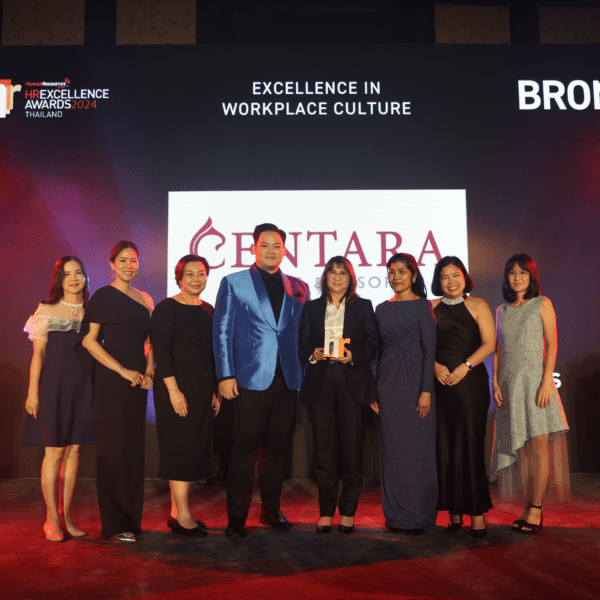 Even though the staffing crisis in the hospitality industry may seem to be over, the reality is that there are still over 1.2 million open positions, and attrition remains high.
Even though the staffing crisis in the hospitality industry may seem to be over, the reality is that there are still over 1.2 million open positions, and attrition remains high.
This can be seen in a recent study that highlights hotels’ growing challenge in attracting and retaining staff. The study also shows that this predicament not only incurs significant costs but also results in the departure of seasoned leaders crucial for training the next generation of employees. The shortage of these senior leaders for mentoring, in turn, contributes to increased pressure on the remaining staff, leading to further attrition.
To offer some experience-backed strategies, Strategic Solution Partners’ Human Resources Expert Deanne Soderberg shares her insights into how leadership-level training can break this cycle by facilitating seamless training for new hires and re-engaging the existing staff.
How can leadership development programs cultivate a positive workplace culture that increases staff retention?
One of the foundational strategies for retaining staff is creating a positive environment where employees feel valued and are happy to come to work. Supportive managers who foster respect and make work fun can build a collaborative community in the workplace.
However, managers and employees are often thrown into their positions with no training or direction, creating an immediate lack of trust in the work environment.
A good leadership-level development program can remedy this as it will help managers become forward-thinking strategic partners as they learn to understand and embrace a company’s culture. This clear understanding enables managers to engage with their staff in a way that blends their strategic expertise with the required adaptability and flexibility to become trusted leaders.
Moreover, staff are more likely to resonate with a leader who is knowledgeable in all departmental areas and willing to assist in day-to-day operations. When a department is well-run and communication is clear and motivational, the leader becomes the go-to person — or mentor — for support, career development, and conflict resolution as they earn the respect of their staff.
It’s important to note that there are many different strategies that a hotel can employ to increase staff retention. Although cultivating a positive environment and implementing excellent training programs are all a great start, more work is needed.
How might tailored recognition and rewards programs increase job satisfaction and improve retention?
Firstly, there needs to be a clear mutual understanding between leaders and staff regarding roles and responsibilities. Staff who believe in the company’s culture and goals and feel secure in their position are more receptive to recognition and reward programs that make them feel valued and appreciated.
However, all team dynamics differ, so leaders must know what motivates their employees, as not everyone will have the same desire for particular forms of recognition. Because of this, it’s essential to identify both independent and team goals and the reward(s) attached to each type of goal. Each department, as well as each employee, may have different goals. For example, in F&B, a team goal could be upselling menu items, while an individual goal could be delivering high service scores to their guests. Whatever the goals, they must be outlined clearly to ensure that the particular reward or recognition is enough to motivate all individual team members. Additionally, strong and competitive benefits need to be offered.
A few examples that go beyond basic medical, dental, and vision benefits include:
- Free health & wellness insurance
- Employee assistance programs (EAPs)
- Free life insurance and Disability Insurance
- Auto, home, and even pet insurance
- Complimentary Food & Beverage and Lodging Benefits
On top of better benefits that offer stability, monetary incentives like 401k profit sharing or achievable bonus programs can increase job satisfaction as employees are encouraged to engage with their work and, in turn, are recognized for their contribution.
Nevertheless, recognition and rewards programs won’t work in an environment where the leaders are not equipped with the skills they need to establish a positive work culture that energizes and motivates employees to stay.
How can managers establish clear career development pathways to encourage employees to stay?
Some employees want to grow, and some see their work as just a job when joining a new company. New hire training is an employee’s first impression of the company, its culture, and how employees are treated and respected, which is an excellent opportunity to get them excited about a career in hospitality.
Establishing a robust training program for new hires — and ongoing development for the existing staff — is a great way to motivate them and help them understand the career development pathways available. These training programs should illustrate the steps that are in place for employees to develop and grow to be the best they can be in their respective departments. Everyone has potential despite having different goals, so the career pathways need to be varied to create a motivational work environment. In this way, they can develop a sense of purpose crucial for staff retention as employees are driven to engage with their work to grow within the company.
In conclusion: Is the investment worth it?
The fact that hospitality staffing challenges persist requires a proactive approach from hotel leaders. According to Soderberg, comprehensive leadership development programs can foster positive workplace cultures and strategic partnerships while turning a “job” into a “career” for its staff. Creating a culture and building a strong people foundation in an organization can assist in developing an industry reputation that drives applicants to want to work for the employer and, as significantly, to maintain an internal community within a company that incentivizes and persuades employees not to leave.
Leadership programs, of course, require time, money, and resources. However, investing in the long-term success of your staff can combat attrition by creating a motivated and engaged workforce — a workforce much less likely to leave the industry.
About Strategic Solution Partners
Strategic Solution Partners is a Hospitality Solutions Provider offering unique consulting services and hotel Task Force solutions.
Founded in 2007, SSP combines decades of hospitality experience with an unrivaled ability to adapt to changing industry conditions and possesses an uncompromising commitment to quality and service that ensures excellence is always top of mind.
The SSP consulting team onsists of top-tier industry experts who can deliver performance and revenue-enhancing solutions to a wide range of clients quickly and efficiently. In addition to quality of service, SSP also prides itself on its range of expertise. Able to provide consulting and Task Force support across all hospitality disciplines and on both executive and management levels, SSP gives its clients one-step access to a plethora of solutions to any hospitality scenario.
Thanks to this well-rounded approach, SSP has been included on the Inc 5000’s list of the Fastest Growing Private Companies for three years in a row and was named one of Financial Times’ Fastest Growing Private Companies in 2020.



















